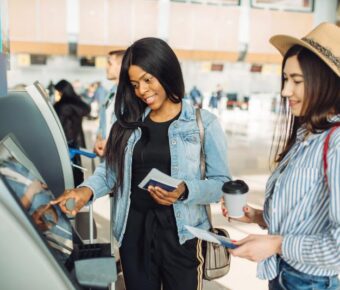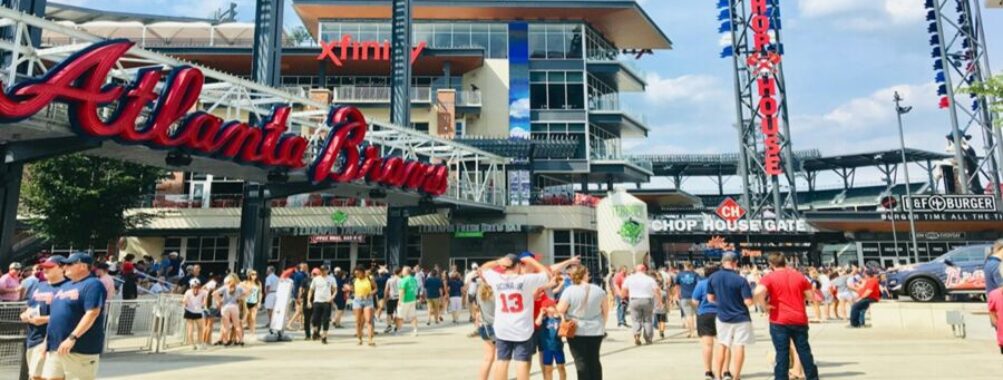
Is Atlanta Safe? 5 Key Insights for Travelers in 2025
Atlanta, Georgia’s bustling capital, draws millions of visitors each year. But is it safe for tourists? While the city has a higher crime rate than some other US destinations, most travelers can enjoy Atlanta safely by taking basic precautions and sticking to popular areas.
The city’s safest neighborhoods for visitors include Buckhead, Midtown, and Downtown. These areas are home to many of Atlanta’s top attractions, hotels, and restaurants. Tourists should stay alert, especially at night, and avoid walking alone in unfamiliar places.
Atlanta’s charm, rich history, and vibrant culture make it a worthwhile destination. By using common sense and staying aware of their surroundings, most visitors can have a fantastic, trouble-free trip to this Southern gem.
Contents
- Understanding Atlanta’s Safety Landscape
- Historical Context of Crime in Atlanta
- Atlanta’s Overall Crime Rates
- The Role of Public Transportation
- Natural Disasters and Preparedness
- Breaking Down Crime by Type
- Violent Crime Analysis
- Property Crime Insights
- Prevalence of Theft and Scams
- Spotlight on Atlanta Neighborhoods
- Finding the Safest Neighborhoods in Atlanta
- Areas Requiring Caution
- Safety Initiatives and Community Efforts
- Evolution of Community Policing
- The Impact of Neighborhood Watch Programs
- Advice for Residents and Travelers
- Protective Measures for Homes and Businesses
- Guidelines for Women and Solo Travelers
- Navigating Tourism Safely
- Understanding Crime Statistics and Sources
- Frequently Asked Questions
- What precautions should one take when living in Atlanta to ensure safety?
- How does the safety of Atlanta after dark compare to daytime hours?
- Can students feel secure in the environment of Atlanta’s college and university areas?
- Which neighborhoods in Atlanta are considered the safest for residents and visitors?
- What are some lesser-known tips for staying safe while exploring downtown Atlanta?
- How does Atlanta’s crime statistic position it in relation to other major cities in terms of safety?
- More Travel Guides
Understanding Atlanta’s Safety Landscape
Atlanta’s safety picture is complex. The city has made progress in some areas but still faces challenges in others. Let’s look at the key factors that shape safety in Georgia’s capital.
Historical Context of Crime in Atlanta
Atlanta’s crime history goes back decades. In the 1970s and 1980s, the city saw high crime rates. This led to a bad reputation that stuck around for years. But things have changed a lot since then.
The city worked hard to fight crime. They added more cops and started new programs. By the 1990s, crime started to drop. This trend kept going into the 2000s.
Still, some areas of the city struggle more than others. Neighborhoods with less money tend to have more crime. The city keeps trying to make all areas safer.
Atlanta’s Overall Crime Rates
Atlanta’s crime rates are higher than the U.S. average. But they’ve gone down in recent years. In 2023, the violent crime rate was about 56 per 10,000 people. That’s less than before.
Property crime is more common than violent crime. Things like theft and car break-ins happen a lot. But even these have dropped.
Some parts of Atlanta are safer than others. Midtown, Buckhead, and Inman Park are good for tourists. Downtown can be okay during the day but gets riskier at night.
It’s smart to be careful, just like in any big city. Don’t walk alone late at night. Keep your stuff close to you. Use common sense and you’ll likely be fine.
The Role of Public Transportation
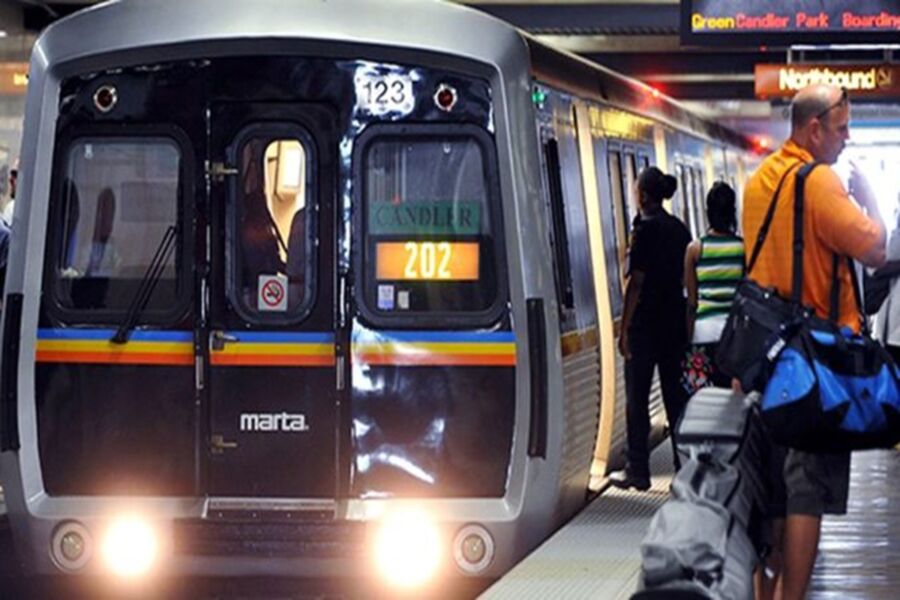
MARTA, Atlanta’s public transit system, plays a big part in city safety. It helps people get around without walking in risky areas. But it has its own safety issues to think about.
Most MARTA rides are safe. Cops patrol trains and stations. Cameras watch what’s going on. But pickpocketing can happen, especially when it’s crowded.
Some tips for safe MARTA use:
- Stay alert
- Keep your stuff close
- Avoid empty train cars
- Don’t use your phone too much
At night, stick to busier stations if you can. If something feels off, trust your gut and move to a different spot.
Natural Disasters and Preparedness
Atlanta faces some natural disaster risks. The biggest threats are tornadoes and flooding. The city has plans to deal with these, but it’s good to be ready.
Tornadoes can hit any time of year. Spring and fall see the most. The city has warning systems to alert people. If you hear a siren, find a safe place fast.
Flooding happens when it rains a lot. Some areas flood more than others. Don’t try to drive through flooded streets. It’s more dangerous than it looks.
Atlanta works to be ready for these events. They have emergency teams and plans. But it’s smart for visitors to know what to do too. Check the weather before you go out. Know where to go if bad weather hits.
Breaking Down Crime by Type
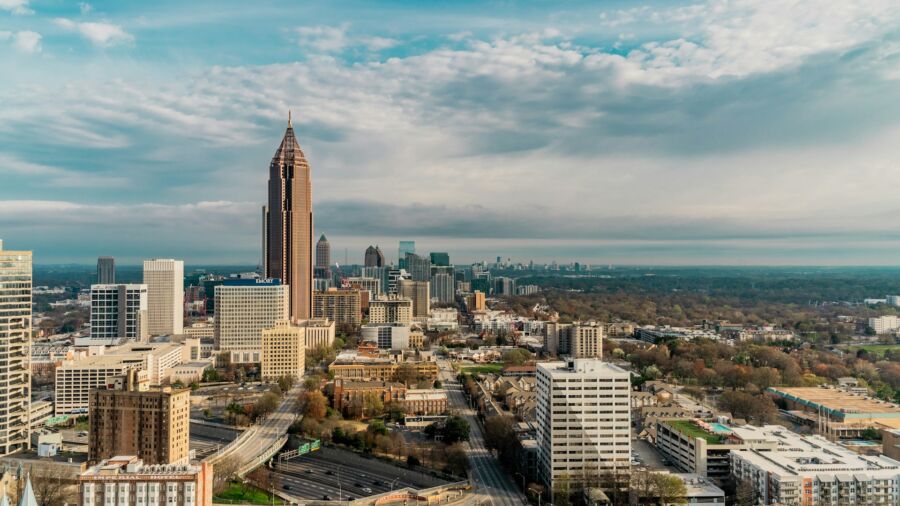
Atlanta’s crime landscape is complex, with different types of offenses occurring at varying rates across the city. Let’s take a closer look at the main categories of crime and how they impact safety in the area.
Violent Crime Analysis
Violent crime in Atlanta includes offenses like assault, robbery, and homicide. The city has seen some improvements in recent years, with homicides dropping 21% in 2023 compared to 2022.
Aggravated assault remains a concern, though. It’s one of the more common violent crimes in the city. Residents and visitors should stay alert, especially in higher-crime areas.
Robbery rates are also worth noting. While not as prevalent as assault, they still occur often enough to warrant caution. Tourists should be extra careful with their belongings in crowded areas.
Property Crime Insights
Property crime is more widespread than violent crime in Atlanta. This category includes burglary, larceny, and motor vehicle theft.
Burglaries are a persistent issue in some neighborhoods. Homeowners and renters should invest in good locks and security systems.
Larceny, or theft of personal property, is quite common. It’s smart to keep valuables out of sight and cars locked at all times.
Car theft is another problem in Atlanta. Residents shouldn’t leave their vehicles running unattended, even for quick errands.
Prevalence of Theft and Scams
Pickpocketing and scams target both locals and tourists in Atlanta. These crimes often happen in busy areas or tourist spots.
Pickpockets work in crowds, so keep wallets and phones secure. Be wary of distractions – they’re often part of a theft attempt.
Scams come in many forms. Some target tourists with fake deals or services. Others use phone or email tricks to steal money or info.
It’s crucial to stay alert and trust your instincts. If something seems off, it probably is. Don’t be afraid to walk away or ask for help.
Spotlight on Atlanta Neighborhoods
Atlanta’s neighborhoods offer a mix of safety levels and unique characteristics. Some areas provide a secure environment for residents and visitors, while others require more caution.
Finding the Safest Neighborhoods in Atlanta
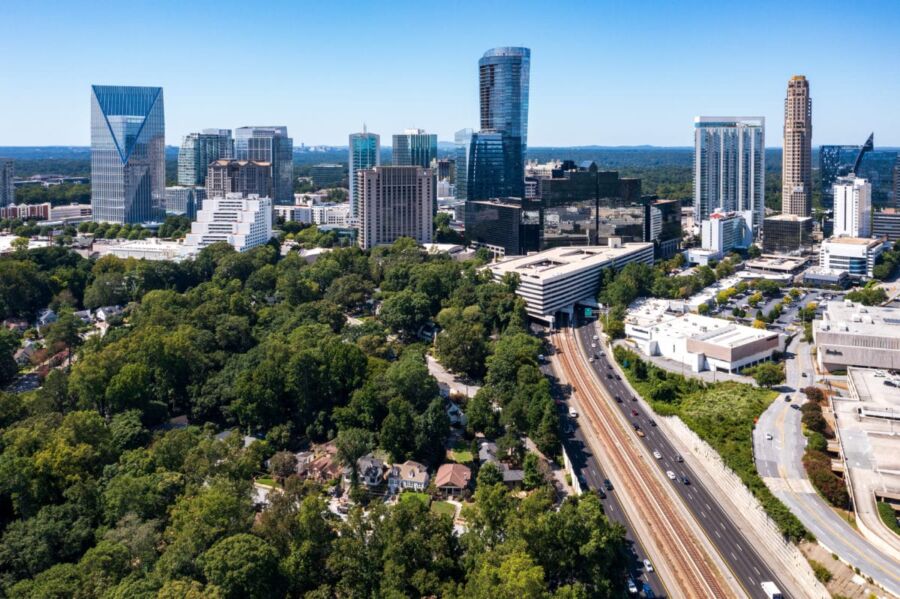
Buckhead stands out as one of Atlanta’s safest areas. This upscale district boasts low crime rates and beautiful homes. Families often choose Buckhead for its good schools and leafy streets.
Virginia Highland is another top pick for safety. This walkable neighborhood has cute shops and restaurants. Residents enjoy a tight-knit community feel here.
Candler Park ranks high in safety too. It’s known for its big park and friendly vibe. People love the outdoor events and festivals in this area.
Morningside is also worth a look. This quiet neighborhood has tree-lined streets and charming bungalows. It’s a hit with families and young professionals alike.
Areas Requiring Caution
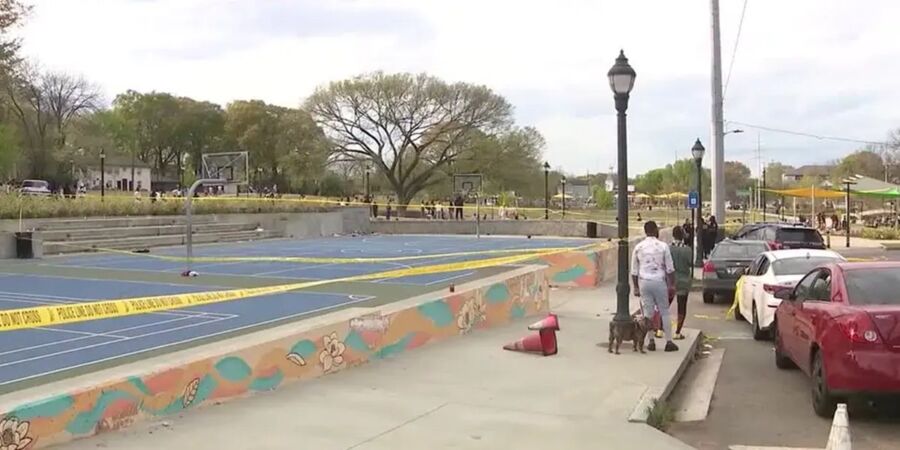
Some Atlanta neighborhoods need extra care when visiting. Vine City has higher crime rates than other parts of the city. It’s best to stay alert and avoid walking alone at night here.
Bankhead is another area where caution is key. This neighborhood has been working to improve safety, but crime is still a concern.
English Avenue faces similar challenges. Visitors should stick to main streets and travel in groups when possible.
Lakewood Heights and Grove Park also have higher crime rates. It’s smart to research these areas before going and take normal city safety steps.
Remember, crime can happen anywhere. Even in safer neighborhoods, it’s wise to stay aware of your surroundings.
Safety Initiatives and Community Efforts
Atlanta has made big strides in making the city safer. People and the police are working together in new ways. Neighbors are also looking out for each other more.
Evolution of Community Policing
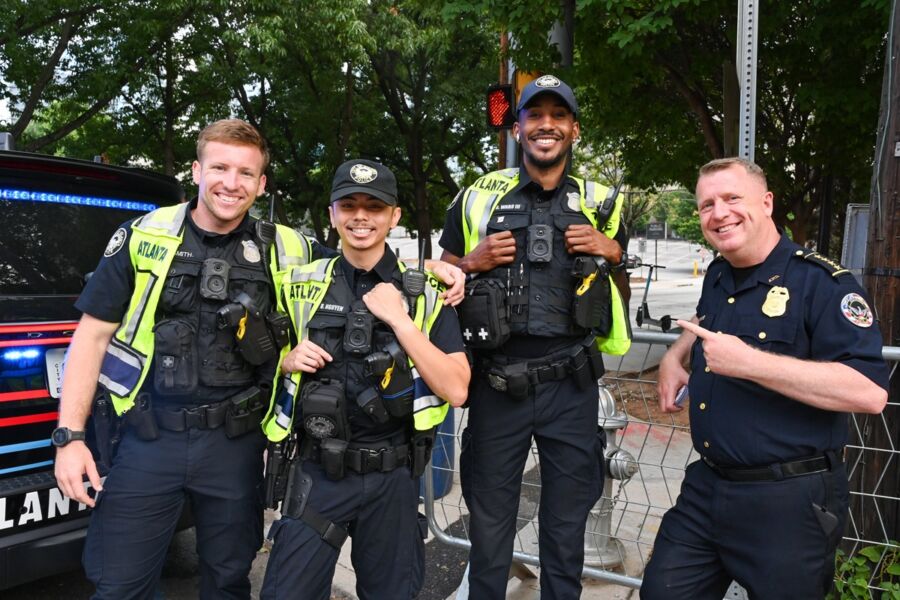
The Atlanta Police Department has changed how they work with people. They’re not just catching bad guys anymore. Now, officers get to know the folks in their neighborhoods. They go to community events and talk to people about their worries.
This new way of policing helps build trust. When people trust the police, they’re more likely to report crimes. The police also learn about problems before they get big.
Some areas have special police units that focus on community ties. These officers might play basketball with kids or help clean up parks. It’s all about making connections and keeping everyone safe.
The Impact of Neighborhood Watch Programs
Neighborhood watch groups are a big deal in Atlanta now. These are regular people who keep an eye on things and report anything weird. They work with the police but aren’t police themselves.
These groups do more than just watch for trouble. They often organize fun events too. Block parties and cookouts help neighbors get to know each other. When people know their neighbors, they’re more likely to notice if something’s not right.
Many neighborhoods have online groups too. They share tips and alerts about safety. Some even use apps to quickly spread the word if there’s a problem. It’s like a modern version of the old “phone tree” system.
Advice for Residents and Travelers
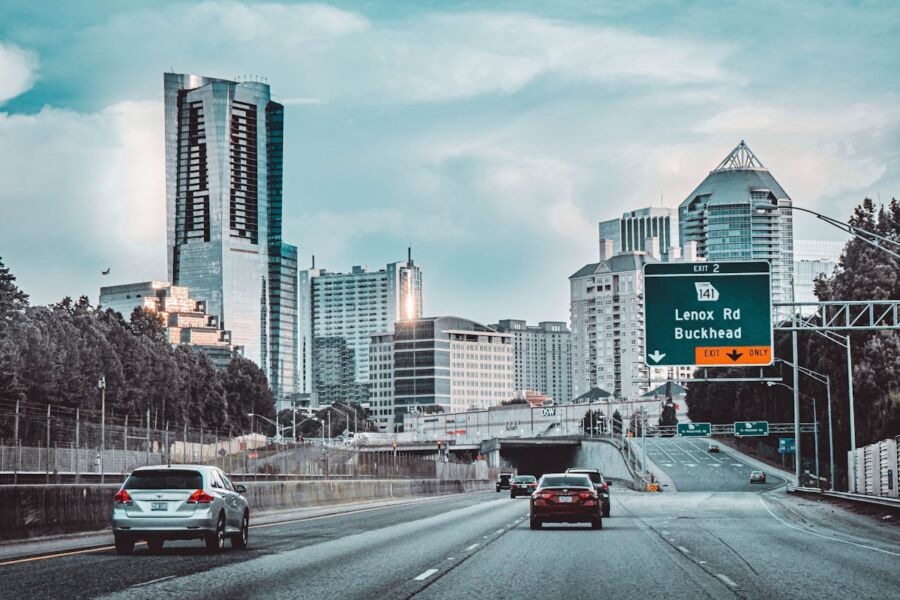
Living in or visiting Atlanta can be a great experience with the right safety precautions. Knowing how to protect yourself and your property is key to enjoying all the city has to offer.
Protective Measures for Homes and Businesses
Atlanta residents should invest in good security systems for their homes and businesses. Cameras, alarms, and strong locks can deter criminals. It’s smart to get to know the neighbors and join local watch groups too.
Keeping outdoor areas well-lit at night helps a lot. Trimming bushes near windows and doors takes away hiding spots for burglars. For extra safety, folks can add motion-sensor lights around their property.
Business owners should train staff on security measures. Having clear rules about handling cash and locking up is important. It’s also a good idea to vary the times for bank deposits to avoid patterns thieves could spot.
Guidelines for Women and Solo Travelers

Women and solo travelers can stay safe in Atlanta with some easy steps. It’s best to stick to well-lit, busy areas, especially at night. Keeping phones charged and sharing travel plans with friends or family is smart too.
Using trusted ride-share apps or taxis is safer than walking alone late at night. Solo travelers should trust their gut – if a situation feels off, it’s okay to leave.
For extra peace of mind, self-defense classes can be helpful. Many local gyms offer these. Carrying a personal alarm is another good safety tool that’s easy to use.
Atlanta’s top spots like the Georgia Aquarium and World of Coca-Cola are generally safe. But tourists should still be aware of their surroundings. It’s best to keep valuables out of sight and use hotel safes for important items.
When visiting places like Piedmont Park or the Atlanta History Center, it’s smart to go during busy times. Tourists should stick to marked paths and well-traveled areas.
The College Football Hall of Fame and National Center for Civil and Human Rights are great places to visit. Just remember to keep an eye on personal belongings. Using cross-body bags or front-facing backpacks can help prevent pickpocketing.
Understanding Crime Statistics and Sources
Crime stats can be tricky to figure out. Different places collect and share info in their own ways. That’s why it’s smart to look at a few trusted sources when checking out Atlanta’s safety.
One helpful tool is the Atlanta Crime Map. It shows where crimes happen around the city. The map uses colors to show which areas have more or less crime. Red spots mean more danger, while yellow areas are a bit safer.
NeighborhoodScout is another good resource. They crunch numbers from local police departments to give a full picture of crime in Atlanta. Their reports tell you your chances of being a victim of different crimes.
It’s key to remember that crime stats don’t tell the whole story. Some crimes don’t get reported. And numbers can change fast from year to year or even season to season.
When looking at crime info, pay attention to the source and how recent it is. Older stats might not show what’s happening now. And some sources might focus on certain types of crime more than others.
Talking to locals can also give you a real-world sense of safety in different parts of Atlanta. They know the city best and can share tips on staying safe while enjoying all Atlanta has to offer.
Frequently Asked Questions
Atlanta has its share of safety concerns, but many visitors enjoy the city without incident. Taking some basic precautions can help ensure a positive experience.
What precautions should one take when living in Atlanta to ensure safety?
Stay aware of your surroundings, especially at night. Lock doors and windows at home. Don’t leave valuables visible in your car. Get to know neighbors and join local community groups. Consider installing a security system or cameras for extra peace of mind.
How does the safety of Atlanta after dark compare to daytime hours?
Like most big cities, Atlanta sees more crime at night. Stick to well-lit, busy areas after dark. Take a cab or rideshare instead of walking alone late. Some neighborhoods are safer than others at night, so research your destination.
Can students feel secure in the environment of Atlanta’s college and university areas?
College areas in Atlanta are generally safe, with extra security measures in place. Georgia Tech and Emory have their own police forces. Still, students should use common sense – travel in groups at night, don’t leave drinks unattended, and stay alert.
Which neighborhoods in Atlanta are considered the safest for residents and visitors?
Midtown, Buckhead, and Virginia-Highland are known as safer areas. Inman Park and Decatur also have good reputations. But no neighborhood is crime-free, so always take basic precautions no matter where you are in the city.
What are some lesser-known tips for staying safe while exploring downtown Atlanta?
Stick to main streets and avoid shortcuts through alleys or empty lots. Keep your phone charged in case of emergency. Be extra careful around ATMs and when using public transit at night. Trust your gut – if a situation feels off, leave the area.
How does Atlanta’s crime statistic position it in relation to other major cities in terms of safety?
Atlanta has a higher crime rate than the national average. It also ranks as less safe than some cities like New York or Boston. However, it’s safer than cities like St. Louis or Oakland. Keep in mind that Atlanta’s safety varies widely by neighborhood, so citywide stats don’t tell the whole story.

